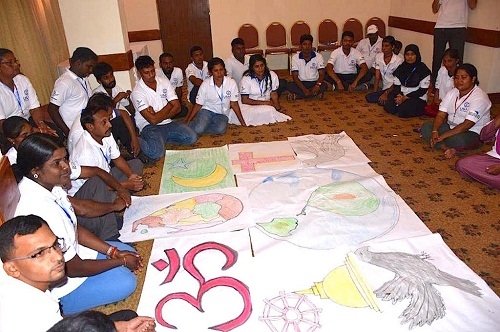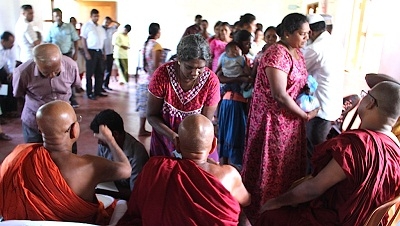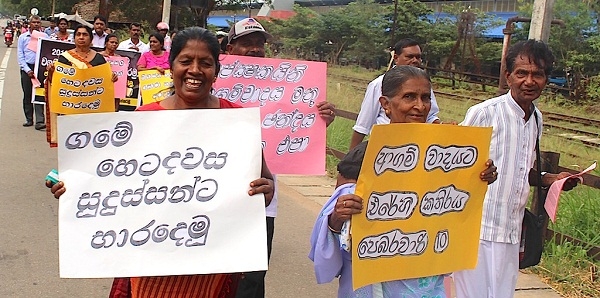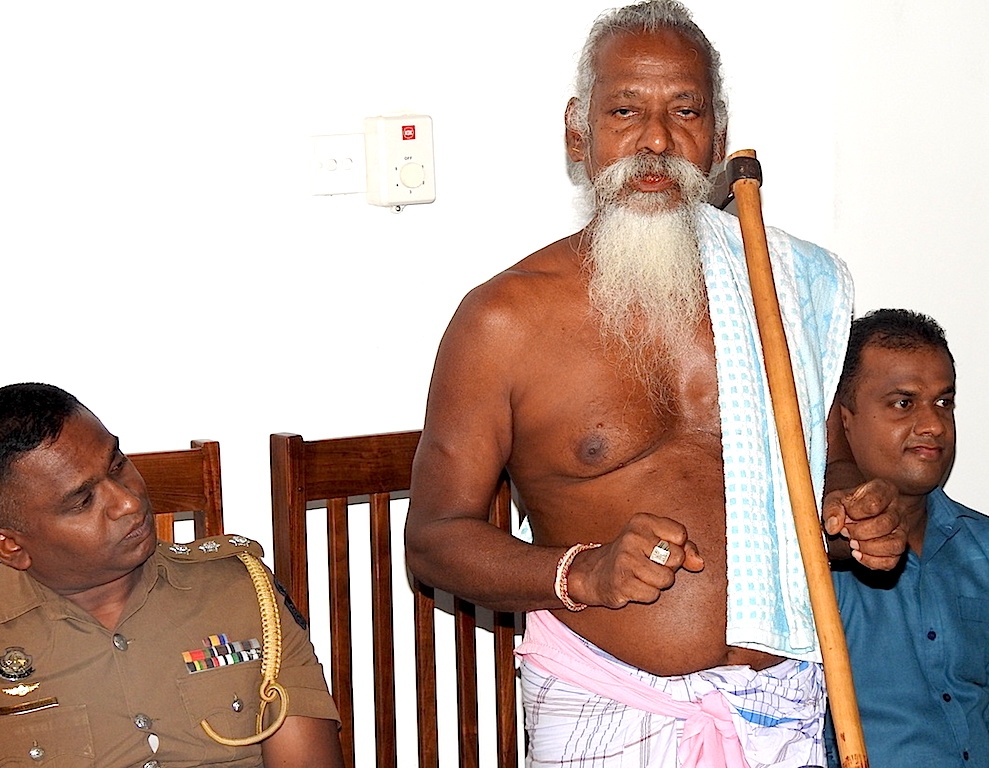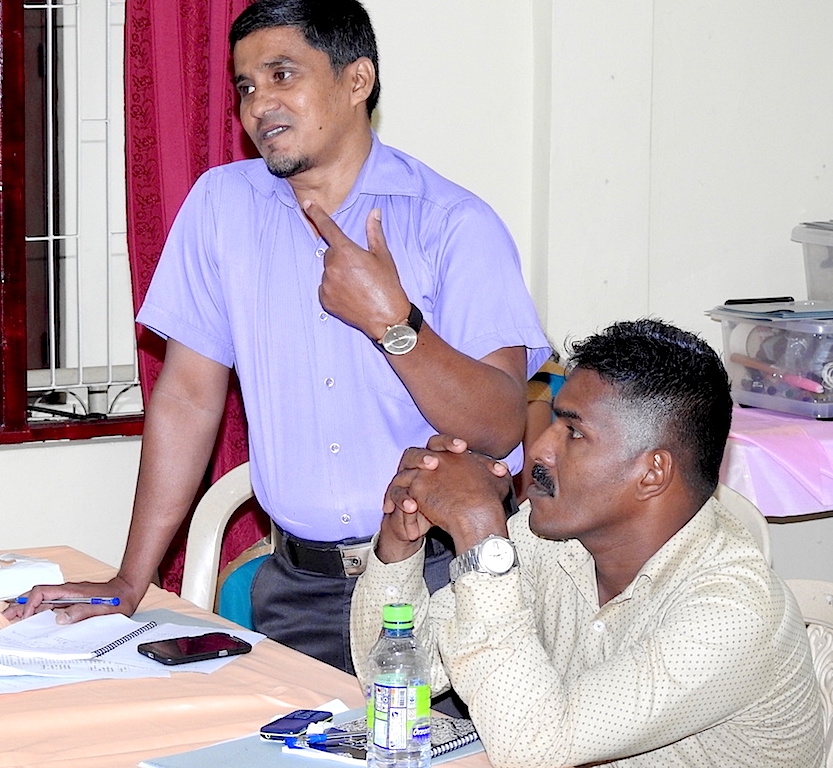A workshop for community leaders on Training of Trainers on Transitional Justice (TJ) was held in Colombo in cooperation with Legal Action Worldwide (LAW) under the project Technical Assistance to Justice Institutions in Sri Lanka.
News
Leaders from all religions attended an almsgiving ceremony at the Sri Nagavihara Temple in Jaffna in memory of Ven. Meegahajandure Gnanaratane Thero, the former Chief Incumbent of the temple.
Six days after the local government elections of February 10, civil society activists from several districts around the country involved in promoting inter religious cooperation for peace took part in a meeting organized by the National Peace Council in Colombo. They saw the government’s poor electoral performance as a result of its failure to honour the mandate it had received in 2015 for good governance, anti-corruption, strong state institutions, economic development and inter ethnic justice and reconciliation.
Young people of different religions and ethnicities were trained in peace building and conflict analysis at a five day residential training programme on Conflict Transformation in Colombo.
NPC held an experience sharing session with Transitional Justice (TJ) civil society trainers and experts to plan a TJ training module and discuss the best methods of training, resource materials, lessons learnt and to exchange success stories.
The Ministry of National Integration and Reconciliation that functions under the office of the president conducted a one day conference for District Reconciliation Committees (DRCs) consisting of religious clergy, government officials, police and civil society members, appointed by the president in his capacity as Minister of National Integration and Reconciliation.
Two Batticaloa DIRC members and two Trincomalee DIRC members attended a Youth 4 Youth symposium under NPC’s project Promoting Inter-faith and Inter-ethnic Dialogue in Sri Lanka funded by the British High Commission.
NPC Executive Director Dr Jehan Perera was invited to be a panelist n a session on Civil Society and Reparations at the International Conference on Reparations organized by the International Organization for Migration (IOM) on February 22 to 23. The UN Migration Agency is currently providing technical assistance to the government on reparations, one of the four pillars of the national reconciliation framework, which Sri Lanka has committed to, as part of its broader efforts in promoting reconciliation, accountability and human rights in Sri Lanka.
Under its IMPACT project, NPC held a training workshop on Transitional Justice (TJ) for 32 Hindu priests, from the districts of Ratnapura, Badulla and Nuwara Eliya.
In time for the local government elections, Nuwara Eliya District Inter Religious Committee (DIRC) launched a campaign in Hatton to promote an election free of racism and religious discrimination. The campaign was funded by the IMPACT/CAFOD project.
Thirty seven members from 16 District Inter Religious Committees (DIRCs) participated in an exchange visit to Vavuniya and Jaffna. The members shared the social, economic and cultural situation in their respective districts and identified many issues of concern.
The youth group formed under NPC’s Religions to Reconcile project, funded by the United States Agency for International Development (USAID) and implemented with a Jordan-based partner organization Generations For Peace (GFP), organized a campaign to clean up the Puttalam hospital and the surrounding premises to address the dengue epidemic that has become a life threatening issue in the district.
Under the FOKUS programme UNSCR 1325 - Women Building Peace in Sri Lanka, 13 war affected people from Trincomalee and Puttalam came to Colombo to submit many unresolved concerns to the Secretariat for Coordinating Reconciliation Mechanisms.
With the local government elections to be held shortly, Kandy and Kurunegala District Inter Religious Committees (DIRCs) launched campaigns to canvass for clean elections free of racism, violence and corruption. Voters were urged to select representatives who opposed racism and discrimination while supporting reconciliation and coexistence.
NPC recently launched a project titled “Collective Engagement for Religious Freedom (CERF)” to ensure religious freedom of all citizens by strengthening Rule of Law and pluralistic values. The project aims to establish Local Inter Religious Committees (LIRC) in eight identified conflict prone Divisional Secretary Divisions: Akurana, Addalaichchenei, Beruwala, Mannar, Mahiyanganaya, Negombo, Vauniya and Weligama.
The introductory activity of NPC’s new project “Collective Engagement for Religious Freedom (CERF)” in the Ampara district was conducted with the Social Organizations Networking for Development (SOND) at the Social Welfare and Development (SWOAD) district head office, Addalachennai.

